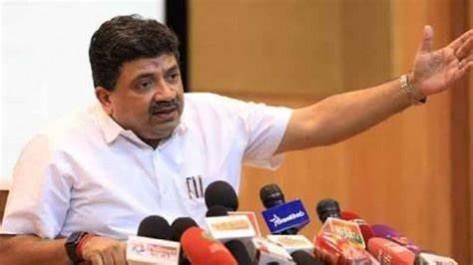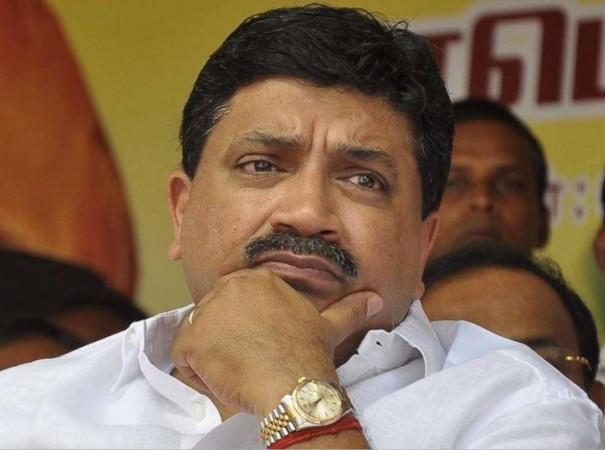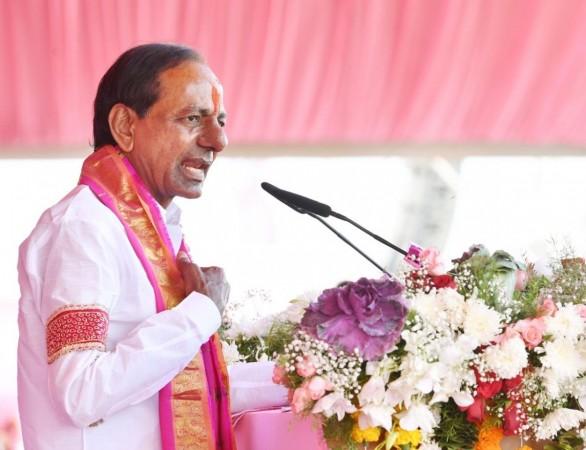Tamil Nadu Finance Minister Palanivel Thiaga Rajan on Thursday urged the Centre to remove cesses and surcharges on petrol and diesel revert to the 2014 rates, an act which is fair and simple.
"We have repeatedly urged the Union government to reduce the cesses and surcharges being levied and merge them with the basic tax rates so that States get their rightful share from the proceeds of the Union taxes," Rajan said.

He was responding to Prime Minister Narendra Modi's call on Wednesday to states to reduce the Value Added Tax (VAT) on fuel "in the spirit of cooperative federalism".
Modi also cited the Central government reducing petrol and diesel prices by Rs 5/litre and Rs 10/litre, respectively.
According to Rajan, since Tamil Nadu levies 'ad valorem' taxes which are applied after Central taxes, this move by the Cebtre will cause an additional loss of about Rs 1,050 crore in annual revenue to the state.
"Given that the Union Government's taxes continue to be exorbitant, it is neither fair nor feasible for the State Government to further reduce taxes."
He hoped that the Central government would heed to this reasonable request in the "true spirit of cooperative federalism".
He said the Centre's levies on petrol have gone up substantially in the past seven years since Modi took charge for the first time in 2014.

Listing out the basic points and the tax rates on petrol and diesel, Rajan said on August 1, 2014, the basic price was Rs 48.55 per litre for petrol and Rs.47.27 per litre for diesel.
On November 4, 2021, the basic price of petrol was Rs 48.36 per litre while that of diesel was Rs 49.69 per litre.
On August 1, 2014, the Centre's taxes were Rs. 9.48 per litre on petrol and Rs 3.57 per litre on diesel. At that time, the state government taxes were at Rs 15.67 per litre on petrol and Rs 10.25 per litre on diesel.
"Prior to the reduction of taxes on petrol and diesel by Union Government, the levy of tax, including cesses and surcharges by Union Government on petrol was Rs 32.90 per litre and Rs.31.80 per litre on diesel," he said.
"This has been reduced to Rs 27.90 per litre for petrol and Rs 21.80 per litre for diesel after the cut. So, when compared to 2014 (when basic price was roughly the same), the Union Government still levies an additional tax of Rs 18.42 per litre for petrol (an increase of roughly 200 per cent) and Rs 18.23 per litre for diesel (an increase of over 500 per cent) compared to the taxes in effect when it took office in 2014.
Instead of asking states, centre should remove cess, surcharges on petrol, ask CMs
PM Narendra Modi's call to states to reduce the VAT on fuel evoked quick response from state CMs and FMs.
Telangana Chief Minister K. Chandrasekhara Rao (KCR) led the tirade and demanded the Centre to remove cess and surcharges on petrol and diesel.
The central government earns almost Rs 33 from the sale of every litre of petrol and Rs 32 from per litre of diesel as per March 2021 figures.
Tamil Nadu Finance Minister Palanivel Thiaga Rajan urged the Centre to remove cesses and surcharges on petrol and diesel revert to the 2014 rates.
On August 1, 2014, the basic price was Rs 48.55 per litre for petrol and Rs.47.27 per litre for diesel. Now it has more than doubled since then, he said.
Rajan said the Centre's levies on petrol have gone up substantially in the past seven years since Modi took over.
"Though the revenue to the Union government has increased manifold, there has not been a matching increase in the revenues to States. This is because the Union government has increased the cess and surcharge on petrol and diesel while reducing the basic excise duty that is shareable with the states.

"In 2020-21, the revenue to the Union government from levies on petrol and diesel was Rs 3,89,622 crore which was 63 per cent higher than the revenue of Rs 2,39,452 crore in 2019-20. On the other hand, the government of Tamil Nadu in 2020-21 received only Rs 837.75 crore as share of the tax devolution from the Union Excise Duties on petrol and diesel as against the Rs 1,163.13 crore received in 2019-20," the Minister added.
According to Rajan, after the advent of the Goods and Services Tax (GST) regime, the states have lost substantial powers to levy their own taxes and raise revenue.
"Further, the GST compensation regime comes to an end on June 30 and most states including Tamil Nadu have already requested the compensation to be extended considering the strain caused by the pandemic on state finances. However, there is no clarity from the Union government on whether the compensation will continue or not after June 30."
(With inputs from IANS)














